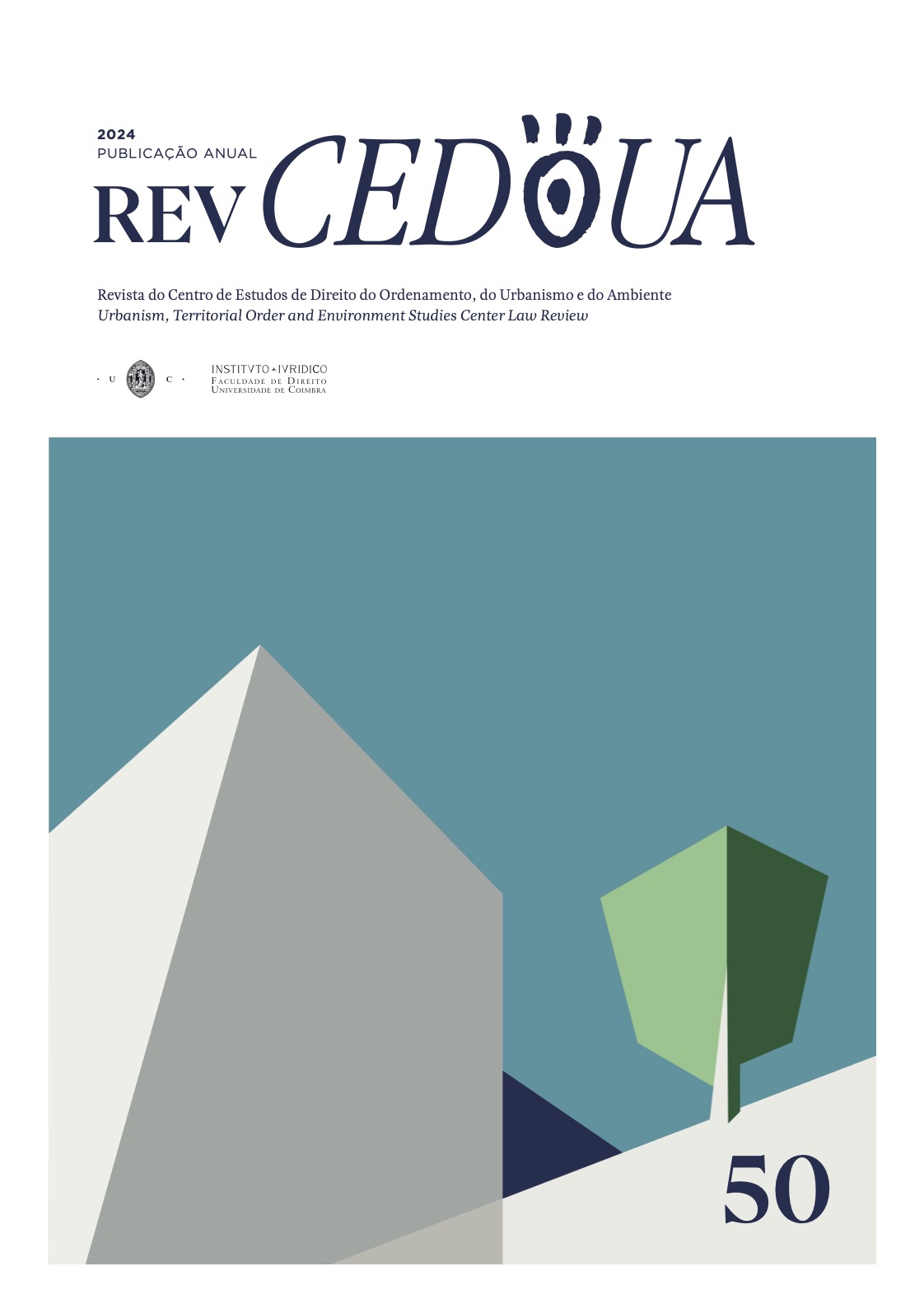Avaliação de Impacte Ambiental
DOI:
https://doi.org/10.14195/2182-2387_50_2Palavras-chave:
avaliação de impacte ambiental, declaração de impacte ambiental, impugnabilidade, legitimidade processual, controlo judicial, discricionariedade administrativa, discricionariedade técnicaResumo
No presente artigo, analisa-se, do ponto de vista da prática judiciária, a questão da impugnabilidade da declaração de impacte ambiental, bem como, resolvida esta questão no sentido de que esta declaração éum acto administrativo impugnável, as consequências da impugnabilidade desse acto.
Analisa-se, ainda, a questão do controlo judicial dos actos praticados no procedimento de avaliação de impacte ambiental, tendo em consideração a margem de discricionariedade administrativa nesta matéria.
Downloads
##submission.downloads##
Publicado
Edição
Secção
Licença
Direitos de Autor (c) 2025 Ilda Côco

Este trabalho encontra-se publicado com a Licença Internacional Creative Commons Atribuição 4.0.
Os autores conservam os direitos de autor e concedem à revista o direito de primeira publicação, com o trabalho simultaneamente licenciado sob a Licença Creative Commons Attribution que permite a partilha do trabalho com reconhecimento da autoria e publicação inicial nesta revista.



